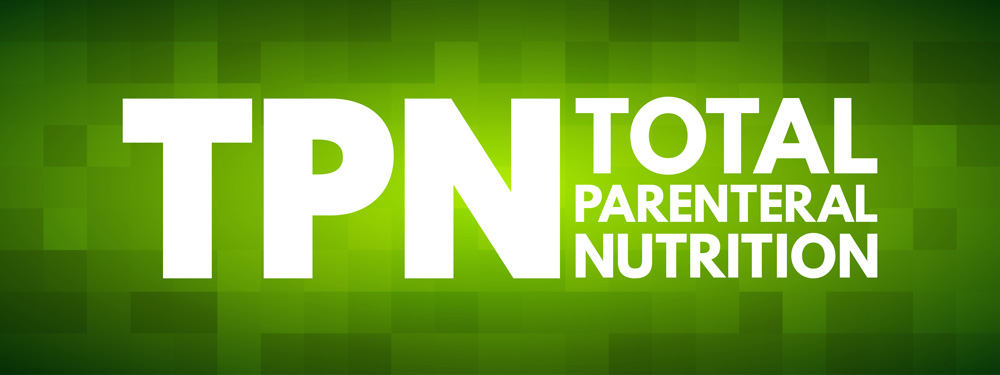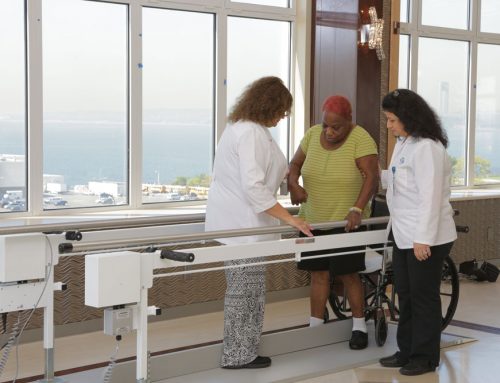Total Parenteral Nutrition (TPN) is a way of supplying the body’s nutritional needs through a vein, bypassing the digestive system. Doctors use it when patients cannot or should not get their nutrition through eating. This is a form of intravenous therapy and under certain conditions it may be performed in a care home.
Total Parenteral Nutrition requires careful preparation and close monitoring and so is a job for medical professionals only. Haym Salomon Home for Nursing & Rehabilitation in Brooklyn NY offers skilled nursing care, rehabilitation therapies, and other adult and senior care services. Do contact us if you would like to find out about our care services.

How Does Total Parenteral Nutrition Feeding Work?
Total Parenteral Nutrition involves inserting a silicone catheter or tube into a large vein in the chest. The operation is performed with the patient under local anesthetic and in a sterile environment to avoid infection. Once the catheter is in position, medics do a chest X-ray to ensure it is in the right place.
The Total Parenteral Nutrition solution is mixed daily under sterile conditions and placed in a bag connected to the catheter. The solution is infused slowly at first and the procedure takes several hours.
The contents of the solution are based on the age, weight, height ad medical condition of the patient. All solutions contain sugar and proteins as well as electrolytes such as calcium, magnesium, potassium, phosphate, and sodium. Vitamins and fats (lipids) may be added to the solution, but not medications.
Who Is Given TPN?
Patients who have problems with their intestines may be given Total Parenteral Nutrition. This may be when the intestines are blocked or when there is a problem with nutrient absorption. Surgeons also use the procedure when the bowels are not allowed to have any food passing through them.
Patients presenting with multiple fractures, severe burns, or widespread infection (sepsis) may also be candidates for such treatment.
How Long Can It Be Used?
The length of time Total Parenteral Nutrition may be used will depend on the severity of individual medical problems. It will also depend on a patient’s age, overall health, and fitness.
Outside a hospital, intravenous feeding is called “home parenteral nutrition” which may be necessary for weeks or months, or in some cases for life. Long-term complications include too many or too few trace elements, such as iron or zinc, and liver problems. Careful monitoring of the make-up of the parenteral nutrition formula can help prevent or treat these complications.
Trained health care providers show caregivers how to prepare, administer and monitor parenteral nutrition at home. The intravenous feeding cycle is often adjusted so that the infusion takes place overnight.
The above information is a rough outline for information purposes only. Seek medical attention if you or your loved one need Total Parenteral Nutrition feeding.
We at Haym Salomon Home accept most insurance policies and are experienced at talking to insurance companies to help you with achieving desired results. Also, our Medicaid coordinators are here to provide any assistance you might need.
This content comprises informative and educational resources only and can not be considered as a substitute for professional health or medical guidance. Reliance on any information provided in this article is solely at your own risk. If you have any inquiries or apprehensions about your medical condition or health goals, talk with a licensed physician or healthcare provider.






Leave A Comment